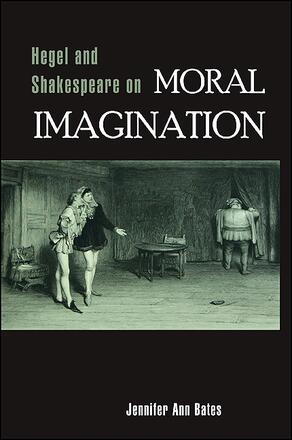
Hegel and Shakespeare on Moral Imagination
Alternative formats available from:
Study of self-consciousness in Hegel and Shakespeare.
Description
In this fascinating book, Jennifer Ann Bates examines shapes of self-consciousness and their roles in the tricky interface between reality and drama. Shakespeare's plots and characters are used to shed light on Hegelian dialectic, and Hegel's philosophical works on art and politics are used to shed light on Shakespeare's dramas. Bates focuses on moral imagination and on how interpretations of drama and history constrain it. For example: how much luck and necessity drive a character's actions? Would Coriolanus be a better example than Antigone in Hegel's account of the Kinship-State conflict? What disorients us and makes us morally stuck? The sovereign self, the moral pragmatics of wit, and the relationship between law, tragedy, and comedy are among the multifaceted considerations examined in this incisive work. Along the way, Bates traces the development of deleterious concepts such as fate, anti-Aufhebung, crime, evil, and hypocrisy, as well as helpful concepts such as wonder, judgment, forgiveness, and justice
Jennifer Ann Bates is Associate Professor of Philosophy at Duquesne University. She is the author of Hegel's Theory of Imagination, also published by SUNY Press.
Reviews
"…outstanding…" — Slavoj Žižek in Absolute Recoil: Towards a New Foundation of Dialectical Materialism
"Reading Shakespeare with Hegel enables Jennifer Bates to present strikingly original readings of both the plays and the weighty tomes. She discloses unsuspected parallels between the overall trajectories of Shakespeare's corpus and Hegel's Phenomenology of Spirit. Both culminate in redemptive comedies of forgiveness that expand our sense of the burdens of philosophy and art. Bates also pushes Hegel toward more fitting aesthetic interpretations. She clarifies the dialectical significance of Falstaff's wit and Hamlet's melancholy, and she explains why Coriolanus provides a better model than Antigone for understanding the gendered collisions of ethical life. An extraordinary example of how to read philosophical and literary texts together. " — Andrew Cutrofello, author of The Owl at Dawn: A Sequel to Hegel's Phenomenology of Spirit
"This ambitious and original project reminds us why these plays and Hegel's writings matter to us in the first place, and just how much they have to teach us. " — Paul A. Kottman, author of Tragic Conditions in Shakespeare: Disinheriting the Globe